
Get In Touch
Request more info or book a tour.
Fill in the form and we'll get back to you in no time!
Despite an unfortunate, ongoing conflict that has sealed some of the most astonishing sites in the country from regular tourists, Mali is still out there, Malians carry on with their lives and, with a bit of planning, some of their human-made wonders can be visited without any complication.
From unspoiled villages to breathtaking man-made monuments and extraordinary landscapes, Mali might be the sub-Saharan African country with the biggest touristic potential, the highlight of our expedition being Djenné, today a raw, untouched city home to the largest mud building in the world, a jaw-dropping mosque that left me absolutely moved.
This is one of the most unique expeditions we have offered up-to-date.
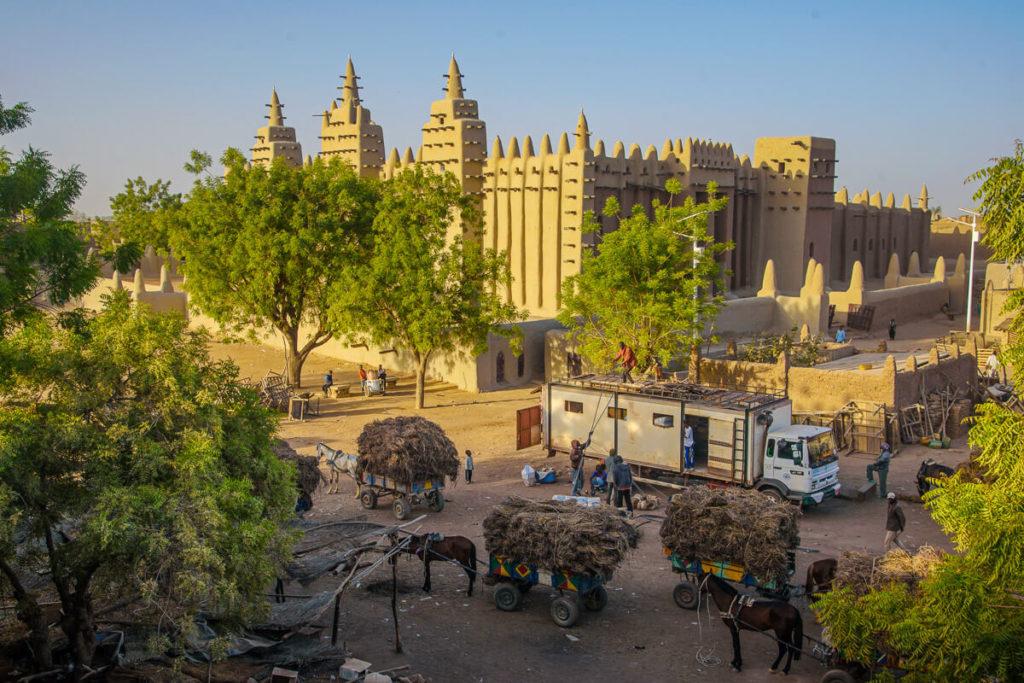
March 5th to 12th
1990€
8 days
Lead by Joan Torres
Note that we always keep the itinerary flexible, and it may be subject to change, depending on the political situation.
Day 1 – Arrival in Bamako
Day 2 – Full day in Bamako
Day 3 – Siby area
Day 4 – Ségou
Day 5 – Ségou
Day 6 – San
Day 7 – Djenné and back to Bamako
Day 8 – Departure
Day 1 is the arrival day in the capital of Mali, a day which we will spend picking you up from the airport, as well as welcoming you, checking into the hotel, and having a few beers.
In the evening, we will all have a welcoming dinner, so we can start to know each other, while we talk about the upcoming adventure.
Overnight in Bamako.
I like Bamako because it is as vibrant as chaotic, and home to kind-hearted Malians who will use any excuse to play some music and dance along the bustling streets.
Being a relatively new city compared to all the historical sites found in Mali, Bamako lacks architectural gems as such but, from a cultural point of view, you will definitely love getting lost in the market lanes, checking out the vegetable gardens along the Niger River, or just strolling down the streets while dodging the endless scooters.
In Bamako, we will visit the medicinal market, the artisan market, the grand mosque, and the sand collectors.
In the evening, we will look for a place with Malian music.
Overnight in Bamako.
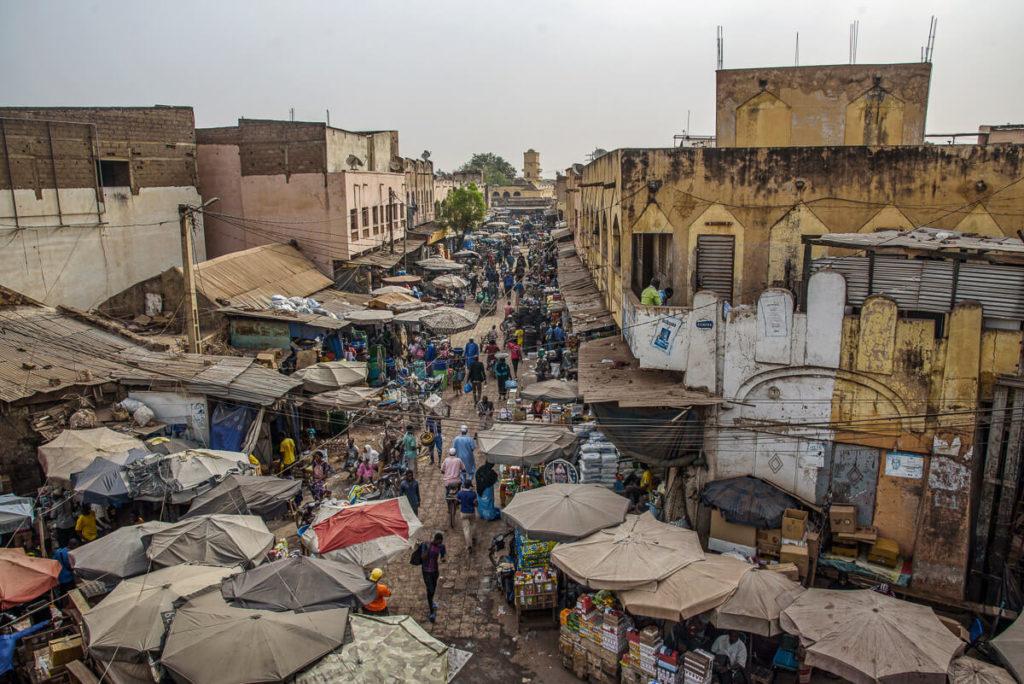
Siby is an area 50km south of Bamako that belongs to the Manding Mountains, a highland area from southern Mali which stretches all the way to Guinea Conakry, and home to the Malinke people, one of the main ethnic groups in West Africa.
The area around Siby is a pretty scenic area for trekking, with vertiginous cliffs and peculiar rock formations like the arch of Kamadjan.
We will explore some of its natural wonders, as well as check out the mango plantations. February is the mango season in Mali, and all mangos come from here so, if you like mangos, know that in Siby you have all-you-can-eat mangos.
Siby is also home to unspoiled villages barely visited by travelers, and we will be checking out a few.
Overnight in Siby.
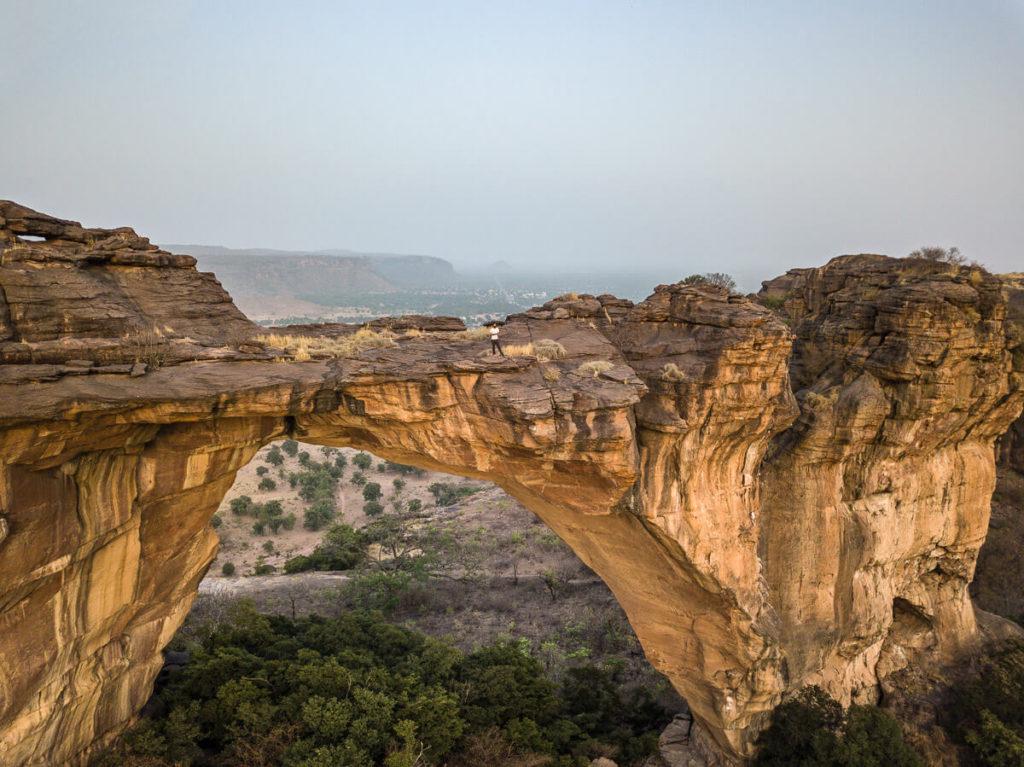
Early morning, we will head for Ségou, a laid-back town with a particularly chilled-out atmosphere, sitting on the shores of the Niger River, and a real highlight of this trip.
On our arrival, we will have our main meal, check out the local market, and then we will take a boat to sail across the Niger River.
I remember there was a pretty cool bar by the river in Ségou so that we can finish our day there.
Overnight in Ségou.
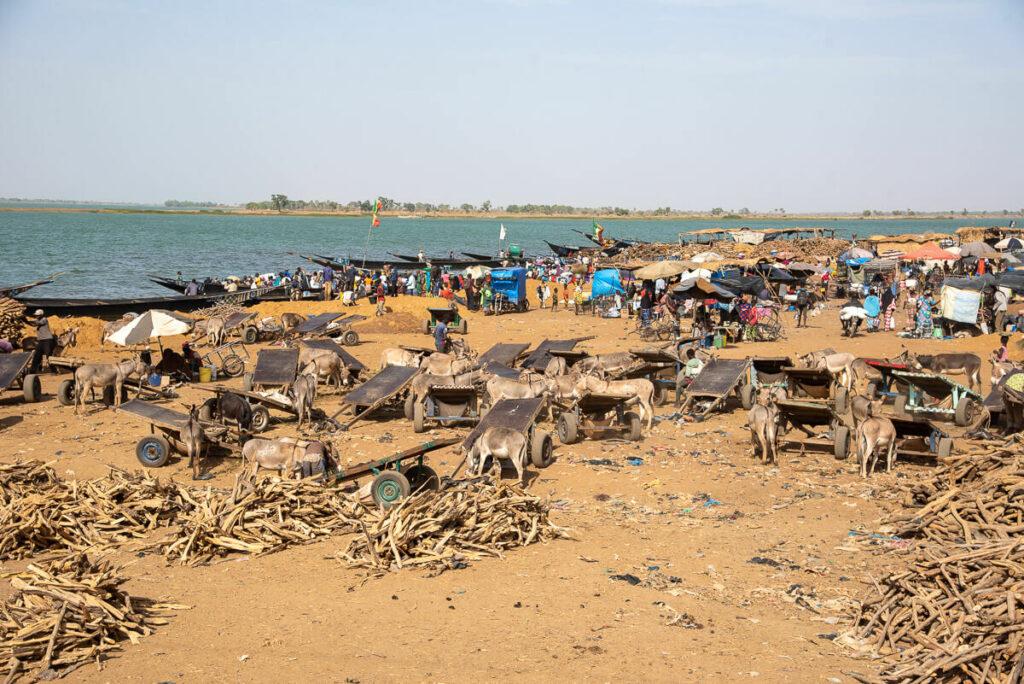
There are so many things to do in this area, including an authentic textile workshop which we will visit, and villages like Koro, which we will visit as well.
Overnight in Ségou.
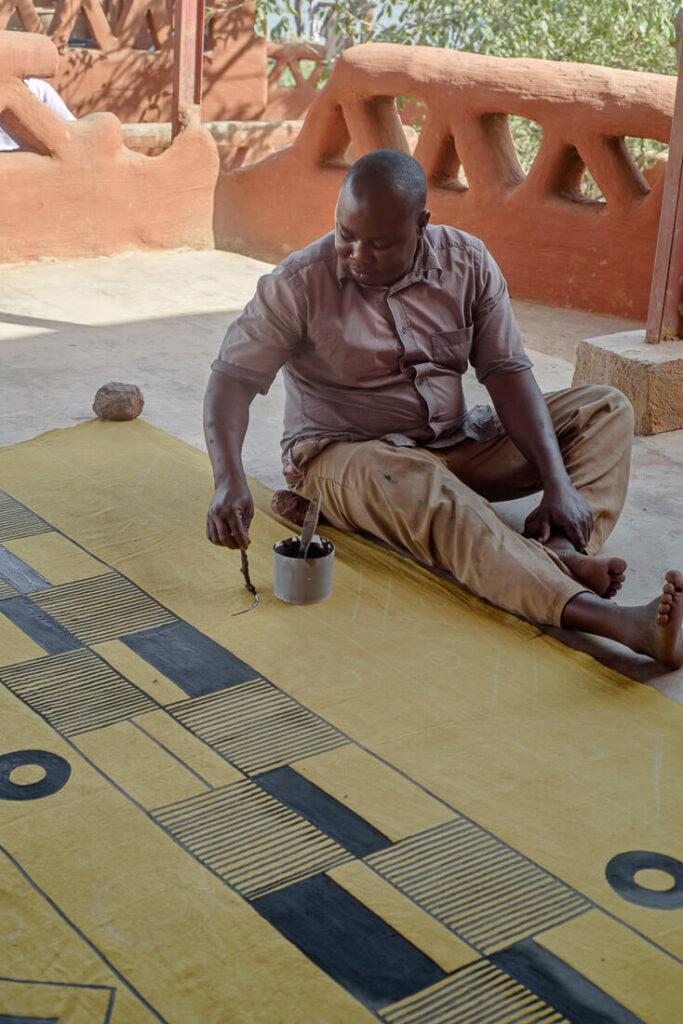
In the morning, we will take things slowly and then head to San, a small Malian city located around 3 hours from Ségou, and home to one of the most famous mud mosques in the country, after those in Djenné and Timbuktu.
This is also our base for visiting Djenné.
We will have lunch, visit the mosque, and enjoy the local life.
Overnight in San.
Very early in the morning, we will drive to Djenné.
Once an important commercial center that competed directly with Timbuktu along the trans-Saharan route, Djenné was also considered to be one of the most cosmopolitan towns in all of Africa but, unlike Timbuktu, Djenné went into decline much quicker, in the 16th century, and what used to be one of the most important centers for Islamic scholarship, is today nothing more than an agricultural, rural town.
Nonetheless, Djenné is absolutely photogenic, since the well-preserved town is entirely built of mud, typically a mix of sand, water and cow dung, making it very pleasant to your eyes.
In Djenné, we will visit the mosque, as well as Quranic schools and of course, we will get lost among its lanes.
After lunch, we will head for Bamako.
Overnight in Bamako.

On the last day, we will take care of your airport transfer.
Airport transfer
7 nights of accommodation (twin shared) in hotels mentioned in FAQ
Private transportation and driver around Mali
Breakfast and lunch
English-speaking knowledgeable Malian guide
Tour leader
Entrance fees to the places listed in the itinerary
International flights to Bamako
Visa fees
Dinner
Alcoholic drinks or any extra drink
Single supplement. Having your own private room costs 140€
March 5th to 12th
1990€
8 days
Lead by Joan
These are the hotels where we always stay but note that once in a while, they might be subject to availability.
There are two ways of getting a visa:
Pretty much all nationalities.
The tour starts in Bamako, which has an international airport.
The most common connections to Bamako are via Paris (Air France), Morocco (Royal Air Maroc), Istanbul (Turkish Airlines) or Tunis (Tunis Air). Dakar is a common stopover too.
Some areas in Mali can be dangerous but the riskiest areas are concentrated north of Mopti and in the Dogon country, and we are not going anywhere near there.
Regarding Djenné, we will visit it on a day trip from San, just to be safer.
12 people maximum.
In order to secure your spot on the tour, we require a 500€ deposit.
Then, the remaining amount should be sent no later than 30 days before the departure date.
Methods of payment will be shared upon booking your spot.
Either you are joining one of our trips, or you are traveling by yourself, you might want to look for proper travel insurance. Against the Compass has been a partner with IATI for several years already, recommending it to all readers, as well as covering all Joan Torres’ personal trips.
We like it because It covers all the countries where the FCDO advises against all travel, it offers budget plans and covers all sorts of adventure activities.
Against the Compass readers can benefit from a 5% discount.
Get a quote here to claim your discount
Please refer to our Terms & Conditions.